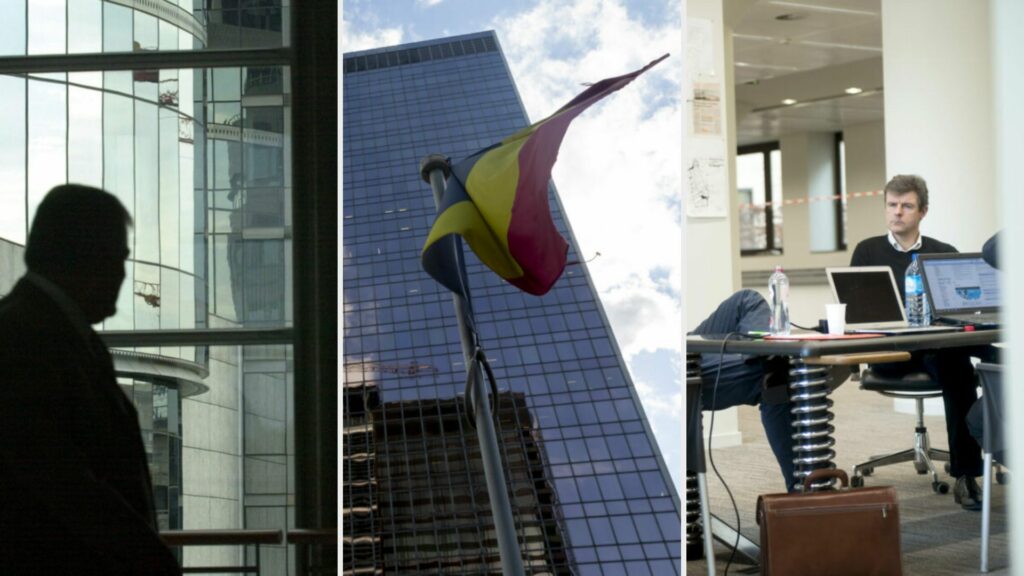How does my salary compare to everyone else? It's something we all ask ourselves every once in a while, inevitably when we read news about wages and are forced to look critically at our job, question our worth, and view our entire working day through the lense of remuneration.
In Belgium salaries are going up each year, with the positive evolution especially marked in Brussels, where the median salary is €3,700. Taken over a five year period, the increase has been more than 25% – a remarkable rise that has stayed ahead of inflation, largely thanks to Belgium's automatic wage indexation, which is designed to do precisely that.
Latest analysis by human resources consultancy SD Worx charts progress across the country and highlights the difference between salaries in different areas. Median wages in Brussels are around €700 more each month than in the south of Wallonia – a gap that will grow in real terms once end of year bonuses, holiday pay, and extra-legal benefits are added.
The concentration of high-paying jobs in the capital isn't surprising, but it's intriguing to see it in real terms all the same. And for those whose salary is lower than the median in their region (which will be exactly half of people working there), feelings of dissatisfaction will likely follow the proof that your paycheque isn't as much as others.
But as interesting as this kind of data is, it's also an inherently imprecise measure of your personal situation. It takes no account of your industry, your age, your career progression or the many other metrics that might serve to evaluate your occupation. It feeds a mindset that pays scant attention to the comfort of a kind colleague or the convenience of a well-located office.
The simple fact that its mathematical basis means that half of us might feel short-changed is important to bear in mind. It's these moments of reflection that stop statistics from shaking our satisfaction.
Belgium in Brief is a free daily roundup of the top stories to get you through your coffee break conversations. To receive it straight to your inbox every day, sign up below:
1. Brussels to restore Place Luxembourg’s central green space
Place du Luxembourg in Ixelles will have its grass and central green space restored after significant damage from the farmer protests, Ixelles Heritage Councillor Yves Rouet announced on Tuesday. Read more.
2. 'Champion of gross wages': Where do people earn the highest salary in Belgium?
The median wage has risen significantly in all Belgian regions in the past five years, but nowhere has it increased more than in Brussels. Read more.
3. Ending stigma: European Parliament group experiments with menstrual leave
The political group 'The Left in the European Parliament' has, for the past six months, allowed staff to take three days per month off as part of a menstrual leave policy. Because of the successful results, it is calling on others to follow suit. Read more.
4. EU resumes funding to UN refugee agency for the Palestinian population
The European Commission decided last Friday to allocate funding to support the Palestinian population through the UN Relief and Works Agency for Palestine Refugees (UNRWA) following the deadly aid convoy incident last week. Read more.
5. 'Limit nuisance, emissions and delays': Agreement reached to optimise flight routes
More than ten years after the idea was first proposed, an agreement was reached on the European level to revise the 'Single European Sky' agreement to optimise flight routes and reduce both delays and CO2 emissions. Read more.
6. Brussels Metro lines 2 and 6 interrupted this weekend
Traffic on Brussels Metro lines 2 and 6 will be interrupted between the stations of Yser and Elisabeth during the weekend of 9 and 10 March, as public transport company STIB is carrying out infrastructure works near Ribaucourt. Read more.
7. Hidden Belgium: The world’s most complicated clock
The little town of Lier contains three extraordinary clocks constructed in the 1930s by the local watchmaker and amateur astronomer Lodewijk Zimmer. Read more.


